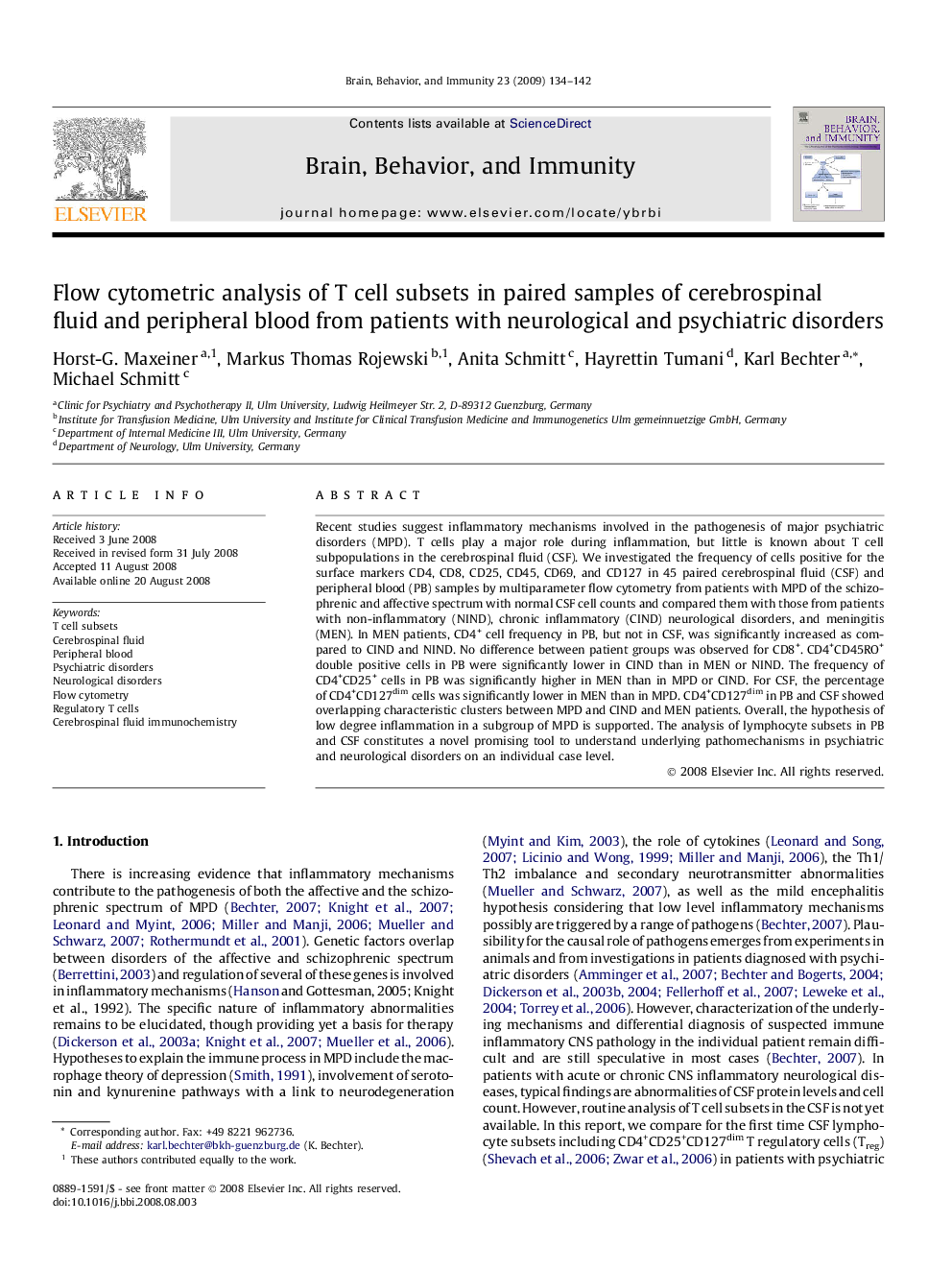| Article ID | Journal | Published Year | Pages | File Type |
|---|---|---|---|---|
| 922937 | Brain, Behavior, and Immunity | 2009 | 9 Pages |
Recent studies suggest inflammatory mechanisms involved in the pathogenesis of major psychiatric disorders (MPD). T cells play a major role during inflammation, but little is known about T cell subpopulations in the cerebrospinal fluid (CSF). We investigated the frequency of cells positive for the surface markers CD4, CD8, CD25, CD45, CD69, and CD127 in 45 paired cerebrospinal fluid (CSF) and peripheral blood (PB) samples by multiparameter flow cytometry from patients with MPD of the schizophrenic and affective spectrum with normal CSF cell counts and compared them with those from patients with non-inflammatory (NIND), chronic inflammatory (CIND) neurological disorders, and meningitis (MEN). In MEN patients, CD4+ cell frequency in PB, but not in CSF, was significantly increased as compared to CIND and NIND. No difference between patient groups was observed for CD8+. CD4+CD45RO+ double positive cells in PB were significantly lower in CIND than in MEN or NIND. The frequency of CD4+CD25+ cells in PB was significantly higher in MEN than in MPD or CIND. For CSF, the percentage of CD4+CD127dim cells was significantly lower in MEN than in MPD. CD4+CD127dim in PB and CSF showed overlapping characteristic clusters between MPD and CIND and MEN patients. Overall, the hypothesis of low degree inflammation in a subgroup of MPD is supported. The analysis of lymphocyte subsets in PB and CSF constitutes a novel promising tool to understand underlying pathomechanisms in psychiatric and neurological disorders on an individual case level.
